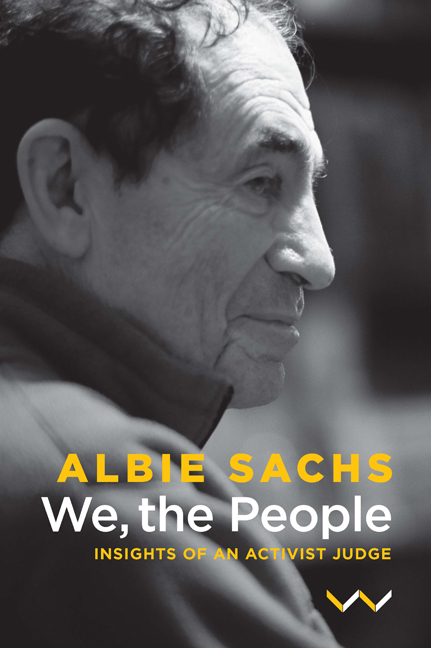Book contents
- Frontmatter
- Acknowledgements
- Miscellaneous Frontmatter
- Contents
- Figures
- Introduction
- 1 In the Beginning
- 2 Hope and Caution in Exile
- 3 We Have to Mistrust Ourselves
- 4 Inventing A Constitution
- 5 With Clean Hands and Without Secrets
- 6 Reconciling the Past and the Future
- 7 Living Constitutional Law and Ubuntu
- 8 More than Crumbs from the Table: Enforcing Social and Economic Rights
- 9 Struggle Continues
- 10 Are the Beautiful People Born?
- Cases Cited
- Sources
- Index
2 - Hope and Caution in Exile
Published online by Cambridge University Press: 21 April 2018
- Frontmatter
- Acknowledgements
- Miscellaneous Frontmatter
- Contents
- Figures
- Introduction
- 1 In the Beginning
- 2 Hope and Caution in Exile
- 3 We Have to Mistrust Ourselves
- 4 Inventing A Constitution
- 5 With Clean Hands and Without Secrets
- 6 Reconciling the Past and the Future
- 7 Living Constitutional Law and Ubuntu
- 8 More than Crumbs from the Table: Enforcing Social and Economic Rights
- 9 Struggle Continues
- 10 Are the Beautiful People Born?
- Cases Cited
- Sources
- Index
Summary
We give the first and last word to freedom, yet we do not know what it is.
This is the central irony of the deep and passionate struggle in South Africa – that it is for something that exists only in relation to what it seeks to eliminate. We know what oppression is. We experience it, define it, we know its elements, take steps against it. All we can say about freedom is that it is the absence of oppression. We define freedom in terms of the measures we need to take to keep its enemy, tyranny, at bay. Tyranny is the negative indicator of freedom; freedom is what apartheid is not.
When the call went up in the 1950s, ‘freedom in our lifetime’, it signified the end of something very specific – colonial domination in Africa and apartheid tyranny in South Africa. The Freedom Charter, adopted in 1955, was conceived of as the reverse of apartheid. A product of struggle rather than of contemplation, it sought in each and every one of its articles to controvert the reality of oppression the people were undergoing. Its ten sections were based on the demands that a suffering people sent in, not on any ideal scheme created by legal philosophers of what a free South Africa should look like.
Any new constitution in South Africa must be first and foremost an anti-apartheid constitution. The great majority of the people will measure their newly won freedom in terms of the extent to which they feel that the arbitrary and cruel laws and practices of apartheid have been removed.
Freedom is not some state of exaltation, a condition of instinctive anarchy and joy; it is not sudden and permanent happiness. In fact, some of the freest countries have the most melancholy and stressed people.
Freedom is indivisible and universal, but it also has its specific moments and particular modes. In South Africa the mode of freedom is antiracist, and anti all the mechanisms and institutions that kept the system of racism and national oppression in place. Yet the Constitution has to be for all South Africans, former oppressors and oppressed alike. It expresses the sovereignty of the whole nation, not just part, not even just the vast majority. If it is to be binding on all, it should speak on behalf of all and give its protection to all.
- Type
- Chapter
- Information
- We, the PeopleInsights of an Activist Judge, pp. 19 - 28Publisher: Wits University PressPrint publication year: 2016



